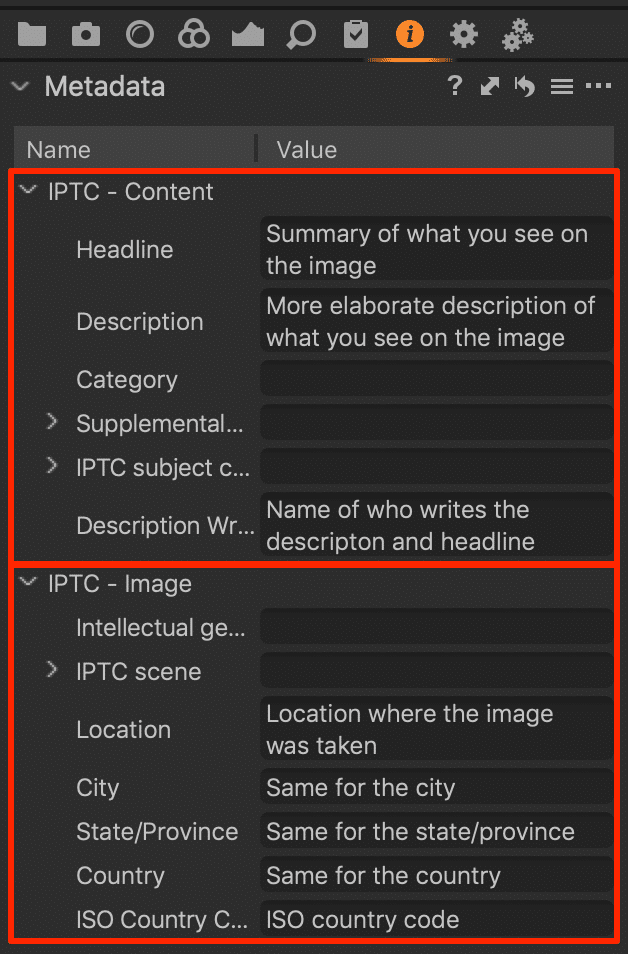Importance of Metadata for SEO
Metadata on photos, such as titles, alt text, and descriptions, can significantly impact SEO by providing search engines with essential context about the images on your site.
Improved Indexing: Metadata helps search engines understand image content, making it easier for them to index and display in relevant search results. Including details like image titles, captions, and alt attributes increases visibility in search results.
Enhanced User Experience: Descriptive metadata allows users to comprehend the purpose of an image, even if it doesn’t load, improving overall site accessibility.
Structured Data Integration: Using structured data like ImageObject allows creators to credit work properly, inform copyright ownership, and enable better organization in Google’s visual search results.
Best Practices
Use Clear, Keyword-Rich Descriptions: Ensure filenames, alt text, and captions reflect the content and include relevant keywords.
Optimize File Sizes: Reducing image load times enhances user experience and boosts rankings.
Include Geotags (Where Relevant): Particularly useful for local SEO, geotags provide location data that enhances relevance in location-based searches.
Potential Downsides
While metadata is beneficial for context, overloading images with unnecessary metadata can slow down page load times. Prioritizing only essential information ensures a balance between performance and optimization.
For a deeper dive into how image metadata impacts SEO rankings and strategies for optimization, you can refer to detailed articles on platforms like Search Engine Journal and Ignite Digital










